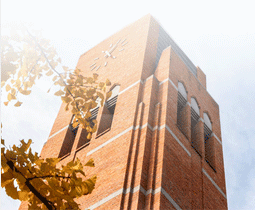Parallel Embedded Systems:
Challenges and Optimizations
美国教授Dr. Edwin Sha将于12月9日晚7:30在曹光彪主楼201会议室做题为“Parallel Embedded Systems: Challenges and Optimizations”的学术讲座,欢迎嵌入式方向的老师和研究生以及其他有兴趣的同学参加。以下为此次学术讲座的相关信息以及教授简介。
演讲人: Dr. Edwin Sha
时 间: 12月9日晚上7:30
地 点: 曹光彪主楼201会议室
计算机学院
2004-12-7
Details:
TITLE: Parallel Embedded Systems: Challenges and Optimizations
Dr. Edwin Sha
Professor
Department of Computer Science
University of Texas at Dallas
Abstract:
With the advance of VLSI system level integration and system-on-chip,the computer industry is now moving toward multiple-core parallel embedded systems using hardware/software co-design approach. To design and optimize an embedded system is technically hard because of the strict requirements of an embedded system in timing, code size, memory, low power, security, etc. while optimizing a parallel embedded system makes research even more challenging. The research in embedded systems needs integrated efforts in many areas such as algorithms, computer architectures, compilers, real-time systems, etc.
This talk will first give an overview of embedded system designs and the technical challenges. Then, we will present our results in various types of optimizations for loops in timing, code-size, memory, power consumption, heterogeneous systems etc. Loops are usually the most critical parts to be optimized in DSP or any computation-intensive applications. One of our results in timing optimizations, for example, proves that any uniform nested loops can be transformed and parallelized such that the new codes in its loop body can be executed simultaneously. Thus, the problem of scheduling multi-dimensional loops is not NP-hard as in the one-dimensional case!
This is a fundamental result and can be applied to many applications executed on VLIW or other parallel systems.
==========================
Edwin Hsing-Mean Sha received B.S.E. degree from National Taiwan University, and Ph.D. degree from the Department of Computer Science, Princeton University, USA in 1992
From August 1992 to August 2000, he was with the Department of Computer Science and Engineering at University of Notre Dame, Notre Dame, IN, and served as the Associate Chair from 1995 to 2000. Since 2000, he has been a tenured full professor in the Department of Computer Science at the University of Texas at Dallas (UTD).
He is the group leader of the computer systems group and a leading professor of the computer engineering program at UTD. His research interests are in embedded systems, parallel architectures, compilers, and network architectures. He has published more than 180 research papers in refereed conferences and journals. He has been serving as an editor for many premier journals including several IEEE Transactions, and program committee members in numerous international conferences. He received Oak Ridge Association Junior Faculty Enhancement Award and NSF CAREER Award. He also served as the program chairs for the International Conference on Parallel and Distributed Computing Systems (PDCS), 2000 and PDCS 2001.
He received the best teaching award in 1998. His projects have been mainly funded by the National Science Foundation, AT&T, Texas Instruments, Texas ARP, etc. His web page can be found in http://www.utdallas.edu/~edsha.
Challenges and Optimizations
美国教授Dr. Edwin Sha将于12月9日晚7:30在曹光彪主楼201会议室做题为“Parallel Embedded Systems: Challenges and Optimizations”的学术讲座,欢迎嵌入式方向的老师和研究生以及其他有兴趣的同学参加。以下为此次学术讲座的相关信息以及教授简介。
演讲人: Dr. Edwin Sha
时 间: 12月9日晚上7:30
地 点: 曹光彪主楼201会议室
计算机学院
2004-12-7
Details:
TITLE: Parallel Embedded Systems: Challenges and Optimizations
Dr. Edwin Sha
Professor
Department of Computer Science
University of Texas at Dallas
Abstract:
With the advance of VLSI system level integration and system-on-chip,the computer industry is now moving toward multiple-core parallel embedded systems using hardware/software co-design approach. To design and optimize an embedded system is technically hard because of the strict requirements of an embedded system in timing, code size, memory, low power, security, etc. while optimizing a parallel embedded system makes research even more challenging. The research in embedded systems needs integrated efforts in many areas such as algorithms, computer architectures, compilers, real-time systems, etc.
This talk will first give an overview of embedded system designs and the technical challenges. Then, we will present our results in various types of optimizations for loops in timing, code-size, memory, power consumption, heterogeneous systems etc. Loops are usually the most critical parts to be optimized in DSP or any computation-intensive applications. One of our results in timing optimizations, for example, proves that any uniform nested loops can be transformed and parallelized such that the new codes in its loop body can be executed simultaneously. Thus, the problem of scheduling multi-dimensional loops is not NP-hard as in the one-dimensional case!
This is a fundamental result and can be applied to many applications executed on VLIW or other parallel systems.
==========================
Edwin Hsing-Mean Sha received B.S.E. degree from National Taiwan University, and Ph.D. degree from the Department of Computer Science, Princeton University, USA in 1992
From August 1992 to August 2000, he was with the Department of Computer Science and Engineering at University of Notre Dame, Notre Dame, IN, and served as the Associate Chair from 1995 to 2000. Since 2000, he has been a tenured full professor in the Department of Computer Science at the University of Texas at Dallas (UTD).
He is the group leader of the computer systems group and a leading professor of the computer engineering program at UTD. His research interests are in embedded systems, parallel architectures, compilers, and network architectures. He has published more than 180 research papers in refereed conferences and journals. He has been serving as an editor for many premier journals including several IEEE Transactions, and program committee members in numerous international conferences. He received Oak Ridge Association Junior Faculty Enhancement Award and NSF CAREER Award. He also served as the program chairs for the International Conference on Parallel and Distributed Computing Systems (PDCS), 2000 and PDCS 2001.
He received the best teaching award in 1998. His projects have been mainly funded by the National Science Foundation, AT&T, Texas Instruments, Texas ARP, etc. His web page can be found in http://www.utdallas.edu/~edsha.






